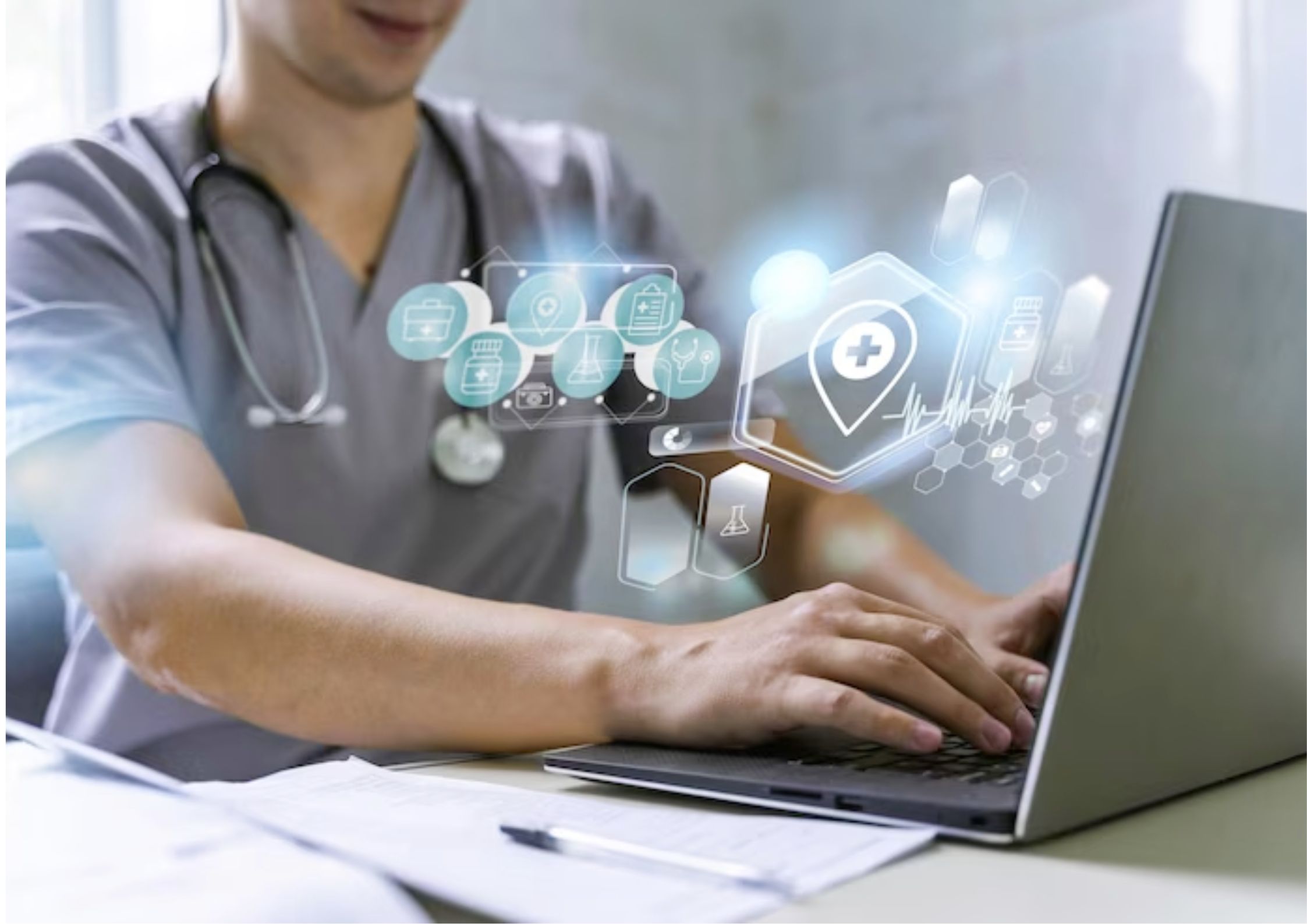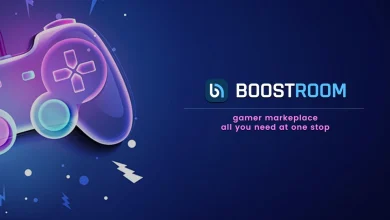The Future Of Healthcare Software Development in 2024

The delivery of patient care is changing due to the most recent technological developments in healthcare. The era of paper medical records and in-person appointments is over as innovative trends in healthcare software development take the lead.
The demand for software solutions for the healthcare sector has drastically changed since Electronic Health Record (EHR) systems were developed. Digital health solutions have developed as a result of this.
According to Grand View Research, the global healthcare IT market will be worth USD 142.7 billion in 2022 and grow at a CAGR of 17.9% over the projected period. It’s time to start looking for a healthcare mobile app development company if your healthcare organization hasn’t yet gone digital.
Ensure you know market trends when working with a healthcare app development business.
What are the most prominent technical developments in healthcare that are currently gaining attention?
With the advent of wearables, IoT devices, blockchain, telemedicine, artificial intelligence, and machine learning, the healthcare sector is poised for a technological revolution.
This article will examine the best healthcare software development trends and companies to select in 2023 while examining the advantages, difficulties, and factors to consider. Prepare to enter a world of healthcare innovation and the digital revolution.
Top Healthcare Software Development Technology Trends to Watch in 2023
Applied Machine Learning and Artificial Intelligence
Healthcare app development services and the sector are going through a rapid digital transition due to artificial intelligence (AI) and machine learning (ML). Businesses now have access to powerful new tools for analyzing massive amounts of data and making wise decisions. The developments could alter how healthcare is delivered and improve patient outcomes.
Examples of how healthcare application development services use AI and ML are as follows:
Clinical Decision Support: AI and ML algorithms can assess large amounts of patient data and provide doctors with immediate advice and aid when making clinical decisions.
Predictive Analytics: Machine learning algorithms may analyze patient data and predict future health outcomes, allowing healthcare organizations to manage patients’ health in a proactive manner.
Individualized medicine: AI and ML can discover novel therapy options and develop individualized patient care regimens based on their medical history and genomic data.
Telemedicine: With the aid of AI and ML, telemedicine services, from virtual diagnosis to remote patient monitoring, can become more precise and effective.
Custom healthcare software development services using ML and AI would significantly impact patient outcomes and healthcare delivery. Healthcare organizations can do the following to better care for patients:
- Improving clinical judgment
- More customized care should be given
Utilize this innovative technology to streamline their operations.
Telemedicine
Utilizing video conferencing, mobile applications, and other technological tools, telemedicine businesses offer medical treatments remotely. The COVID-19 pandemic will likely accelerate the demand for virtual treatment, and telemedicine is predicted to become a key technology trend in healthcare delivery by 2023.
Apps for telemedicine let patients get care faster, for less money, and with greater pleasure. Healthcare organizations can collaborate with the top healthcare app development companies to create effective telemedicine solutions that give patients access to high-quality care.
Blockchain
Blockchain will be another ground-breaking technological revolution in healthcare software in 2023. Due to blockchain’s decentralized and secure nature as a digital ledger, data may be recorded safely and publicly. Those who develop healthcare apps can use blockchain technology to increase data security, expedite administrative processes, and protect patient privacy.
The capacity of blockchain technology to securely communicate sensitive patient data among healthcare providers while maintaining anonymity is one of the industry’s key advantages. As a result of this
- improved medical results
- faster and more accurate diagnoses
Healthcare organizations need to collaborate with a provider of bespoke healthcare software development services that can incorporate blockchain technologies in accordance with the company’s needs to ensure the success of their digital enterprise.
IoT and wearable devices
Healthcare software development is becoming more important as wearables and IoT devices become current trends in the industry. Wearables like fitness trackers and smartwatches can collect and store information on physical activity, heart rate, and sleep patterns. Developers of healthcare mobile apps can use this data to provide more personalized and effective care.
IoT gadgets that enable remote monitoring and management of chronic conditions, such as connected medical equipment and smart home appliances, can also benefit the healthcare industry. By providing early warning signs of exacerbations and enabling faster interventions, smart home equipment, for example, can monitor and treat people with diabetes or cardiovascular disease.
Utilizing wearables and IoT devices as the newest technological trend in healthcare for 2023 and beyond may help healthcare firms improve patient outcomes, save costs, and foster creativity in their processes.
Healthcare technology trends in other areas:
Cloud Computing: One of the most recent developments in the healthcare sector is cloud computing, which enables businesses to store and retrieve data from any location with an internet connection. On-premise data storage alternatives may become more affordable, and data security and accessibility may improve.
EHR Interoperability: Electronic health records (EHRs) have transformed the medical field and are now a popular technology. Interoperability between disparate EHR systems has, however, shown to be a barrier. Developing solutions that facilitate seamless data exchange between various EHRs to enhance patient care and clinical processes will be given attention.
Virtual and augmented reality: By giving patients new ways to interact with their doctors and get treatment, virtual and augmented reality (VR and AR), two contemporary developments in healthcare, have the potential to alter the way healthcare is provided. The possibilities include everything from augmented reality-based medical education to virtual simulations of surgical procedures.
Predictive Analytics: Using data, statistical algorithms, and machine learning techniques, predictive analytics—the newest technology trend in healthcare—can foresee future events and patterns. Predictive analytics has enabled the healthcare industry to anticipate disease outbreaks, identify high-risk individuals, and guide public health policy.
Patient-Generated Health Data: Patient-generated Health Data (PGHD) has increased due to patients’ greater involvement in healthcare decision-making. The term “PGHD” refers to any health data that patients or their caregivers create, record, or collect, which may include data from wearable devices, smartphone apps, and other sources. In 2023, PGHD will be utilize more often as healthcare mobile app development companies try to improve patient involvement and outcomes.
Challenges and Factors to Consider
Despite the current healthcare trends and the many benefits of developing healthcare software, there are several challenges, including interoperability, security, privacy, and regulatory compliance. Healthcare mobile app development businesses must interact with key stakeholders and consider these concerns when applying these trends to get the greatest results.
Healthcare organizations must abide by laws governing the industry, such as HIPAA (Health Insurance Portability and Accountability Act) and GDPR (General Data Protection Regulation). Regulatory compliance is what we call this.
Despite the move toward technology in healthcare, data security and privacy are significant challenges. Since it is imperative to safeguard sensitive patient data. Businesses implement robust data security measures, including encryption and access controls, to prevent unauthorized access and breaches.
The requirement for interoperability refers to the challenge of ensuring disparate healthcare systems can readily communicate and exchange information. This is particularly important in the case of electronic health records (EHRs). Where improved clinical processes and interoperability are essential for patient care.
Therefore, businesses must know these challenges and consult with key stakeholders to get the best results. When incorporating new and current trends in healthcare software development. By employing a proactive approach, healthcare firms may take advantage of the many benefits of custom software development while reducing potential risks and guaranteeing regulatory compliance.
Conclusion
The use of current healthcare technology trends for developing software solutions is propelling the industry’s digital transformation. It is anticipate that the top healthcare software development trends of 2023 will substantially impact patient outcomes and healthcare delivery.
However, Healthcare organizations must also consider the challenges and problems of implementing these trends. Such as regulatory compliance, data privacy and security, and a lack of interoperability.
The first step to ensuring a smooth digital transformation and a long-term positive influence on the bottom line. Maybe to partner with the proper healthcare software development business.



